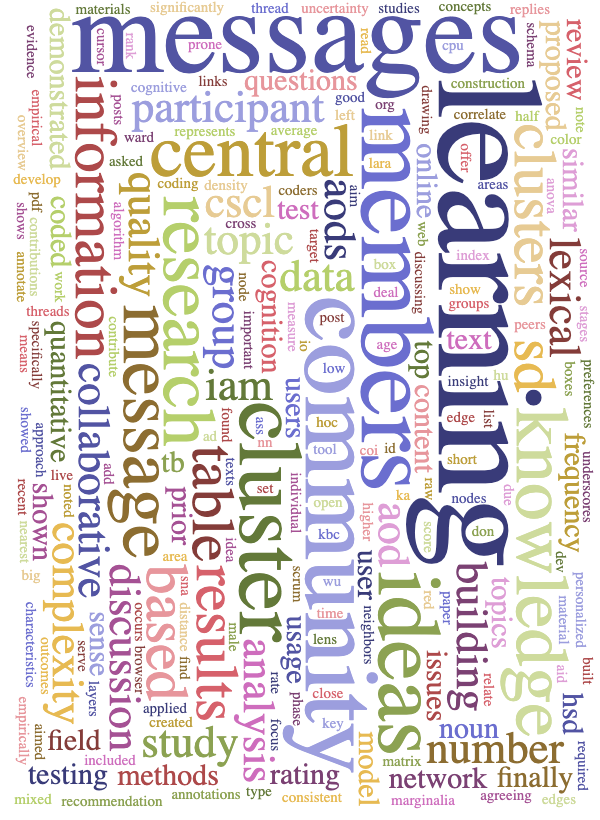My colleagues and I recently published in the prestigious Journal of Management Information Systems (JMIS) titled, “Promoting learning community formation using recommender systems and learning analytics within a computer-supported collaborative learning software.” The paper provides an interesting deep dive into how collaborative recommendation systems facilitate knowledge communities. Below is the tag cloud, abstract, and full citation to the research.

Abstract
This paper explores the formation of a learning community facilitated by a specialized computer-supported collaborative learning asynchronous online discussion (AOD) tool. Drawing on research in group cognition, knowledge building discourse, and learning analytics, we conducted a mixed methods field study involving an AOD consisting of 259 messages posted by 50 participants. We applied degree and closeness centrality to cluster participants into three clusters corresponding to the central, intermediate, and peripheral community layers. The findings show that the intermediate cluster had the opportunity to influence others’ thinking within discourse, but it was the central cluster, which re-constructed the raw ideas affected by others’ feedback. The results further provide evidence that message lexical complexity does not correlate to the stages of knowledge building. Finally, results offer an initial insight into which ideas reached to higher stages of knowledge building among the clusters. Theoretical and practical implications are discussed.
Reference
E. Eryilmaz, B. Thoms, Z. Ahmed, KH Lee. “Promoting learning community formation using recommender systems and learning analytics within a computer-supported collaborative learning,” Journal of Management Information Systems, April 2022. (Impact Factor 7.84)
